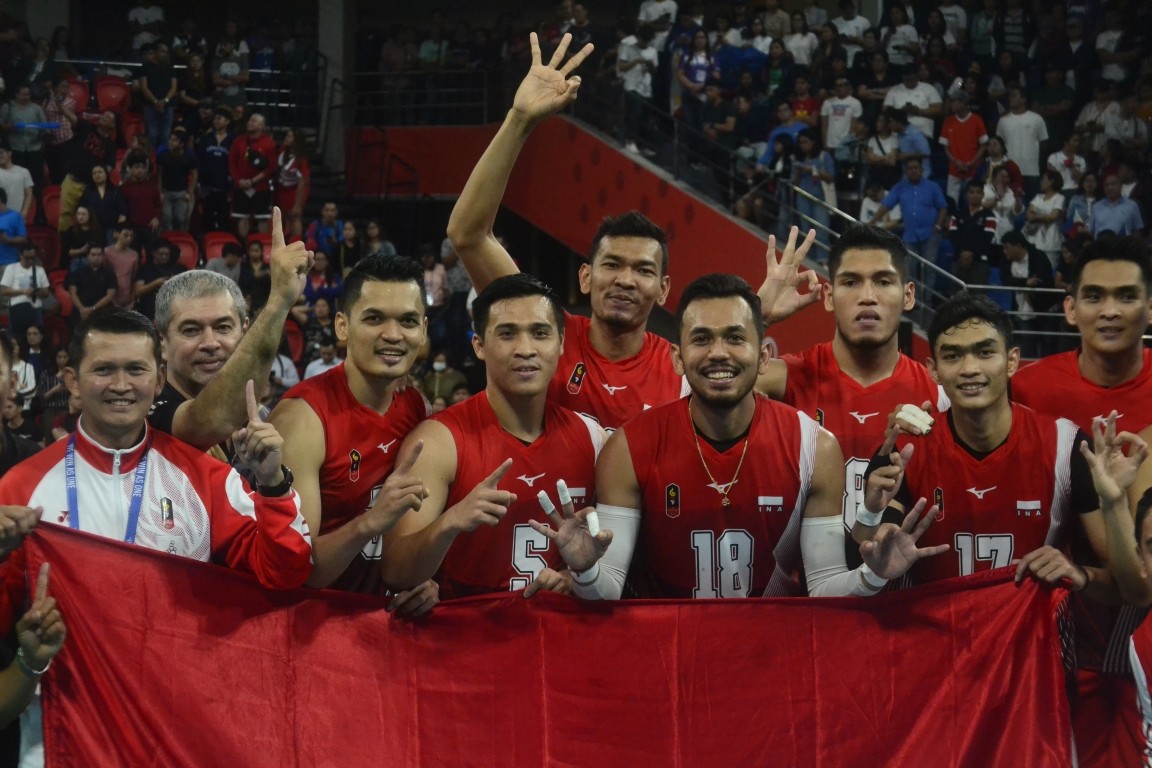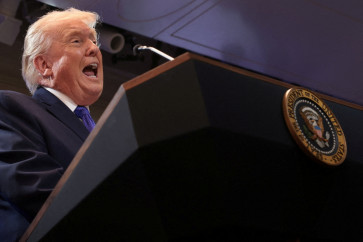Popular Reads
Top Results
Can't find what you're looking for?
View all search resultsPopular Reads
Top Results
Can't find what you're looking for?
View all search resultsPandemic creates fresh momentum for new sports blueprint
The Youth and Sports Ministry is formulating a so-called national sports grand design to transform young athletes into champions.
Change text size
Gift Premium Articles
to Anyone
The late Bob Hasan, a father figure for Indonesian athletics, once said that one of his failures in more than 40 years of leading the Indonesian Athletics Association (PASI) was the inability to constantly produce a large number of track and field champions.
Bob, who passed away in March, said the PASI was only able to produce one star athlete at a time, even before his leadership, from sprinter Mohammad Sarengat in the 1960s to the current top sprinter Lalu Muhammad Zohri.
“So far, [we have been able to produce] one top athlete every decade. This is wrong,” he told The Jakarta Post in September. He said that the PASI, at the time, was perfecting its training regimen and expanding the reach of its talent scouting program.
What Bob said reflects what is happening in almost every sport in the country, which has long been struggling with formulating long-term, comprehensive development programs for athletes to transform young athletes into champions.
The Youth and Sports Ministry is now formulating the so-called national sports grand design to improve the country’s sporting prowess, with minister Zainudin Amali noting that the country had more time to do so after many sporting events have either been canceled or postponed due to the COVID-19 pandemic.
The plan was revealed by Zainudin during an online public discussion hosted by the Semarang State University last week. He said Indonesia's sports achievements mostly happened by accident.
“Data show that our past achievements were not by design but by accident. We found talents and we trained them. But we could not duplicate [either the success or the process]. We have no system for creating achievements," he said.
The planned sports blueprint, he said, was particularly important in supporting Indonesia's ambition to host the 2032 Summer Olympics, where fresh batches of athletes from across the world are expected to compete.
The scheme also aims at promoting sports science in Indonesia, which has fallen behind Southeast Asian countries in sports science, as reflected in Indonesia's mediocre performance at past biennial multisport regional events like the SEA Games.
Analysts, however, said Zainudin's plan for a sports grand design was not new. A similar idea had once been floated by then-sports minister Adhyaksa Dault during the presidency of Susilo Bambang Yudhoyono.
Adhyaksa had gathered 55 sports experts from Aceh to Papua to formulate a strategy for national sports, according to sports expert Tandiyo Rahayu from Semarang State University, but the scheme was abandoned when Adhyaksa's term in office ended.
Such a discontinuity in sport policy hampered national sports development, Tandiyo said.
Some major federations, such as those for badminton, soccer, athletics and swimming, meanwhile, have their own programs to optimize performance of athletes, even though these efforts are still far from perfect, according to Tandiyo.
A lack of facilities contributes to the poor development of sports science, with Tandiyo recording only Jakarta, West Java and East Java as having sports science laboratories.
Sports expert Djoko Pekik Irianto from Yogyakarta State University called on the government to be consistent in developing sports nationwide and to build a sports culture among the youth and society at large.
He also said that the state budget allocation for sports was not enough to support sports science development and increase the use of sports science in athletes’ training programs.
This year, the Youth and Sports Ministry will receive about Rp 1.7 trillion (US$114 million) from the state budget, among the lowest received by any ministry.
"Not to mention that many coaches are not familiar with sports science. Therefore, I suggest scholars create a practical formula that can be easily implemented by coaches in daily training programs for athletes,” Djoko said.










